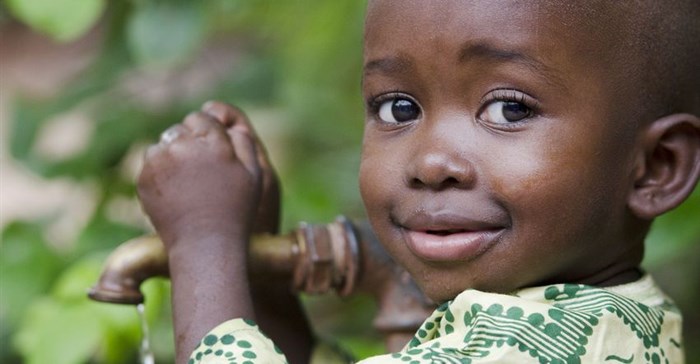Study: Few nations see beyond hunger in fighting malnutrition

Water, sanitation, and hygiene, usually treated by governments and NGOs as a separate policy area from food and nutrition, make up the second leading cause of stunted growth in children, after underweight births, said the report.
But only Cambodia, Niger, and Zimbabwe among the ten countries covered by the report are linking their response to malnutrition and water by bringing together the responsible agencies, according to charity WaterAid.
Governments that treat food and water separately cannot prevent malnutrition
"Improving child health is a long term issue. It's not as simple as giving food and that improves malnutrition - right?" Dan Jones of WaterAid told the Thomson Reuters Foundation.
Jones said governments that treat food and water separately cannot prevent malnutrition. Instead, they must tackle the poor sanitation that causes malnutrition, via infection and disease.
In 2016, 155 million children under five were stunted due to a lack of nutrition, according to the United Nations World Health Organization. Diseases caused by dirty water and lack of sanitation such as gut infections, intestinal worms, and diarrhoea prevent young bodies absorbing the nutrients needed for growth, according to WaterAid, which produced the report with charities Action Against Hunger and Share.
Jones said malnutrition can leave children with invisible cognitive, emotional and physical damage.
Yet the effects are clear, and span all areas of development, from economic growth to schooling, said Jones.
"If they have clean water... girls, when they grow up to be mothers are more likely to give birth to healthy children, and to be able to help them to grow and develop and provide them with clean water and food - and those children can go to school and concentrate in school," said Jones.
Cambodia singled out
Jones singled out Cambodia for linking up its response.
One in three Cambodian children under five is stunted but Prime Minister Hun Sen has brought together the ministries responsible for nutrition, health, agriculture, and water and sanitation to create a joint response.
"It sounds very obvious but those ministers really talking to each other can make a huge difference," said Jones.
Thomson Reuters Foundation
Reporting by Matthew Ponsford, Editing by Lyndsay Griffiths
Source: allAfrica

AllAfrica is a voice of, by and about Africa - aggregating, producing and distributing 2000 news and information items daily from over 130 African news organisations and our own reporters to an African and global public. We operate from Cape Town, Dakar, Lagos, Monrovia, Nairobi and Washington DC.
Go to: http://allafrica.com/



























